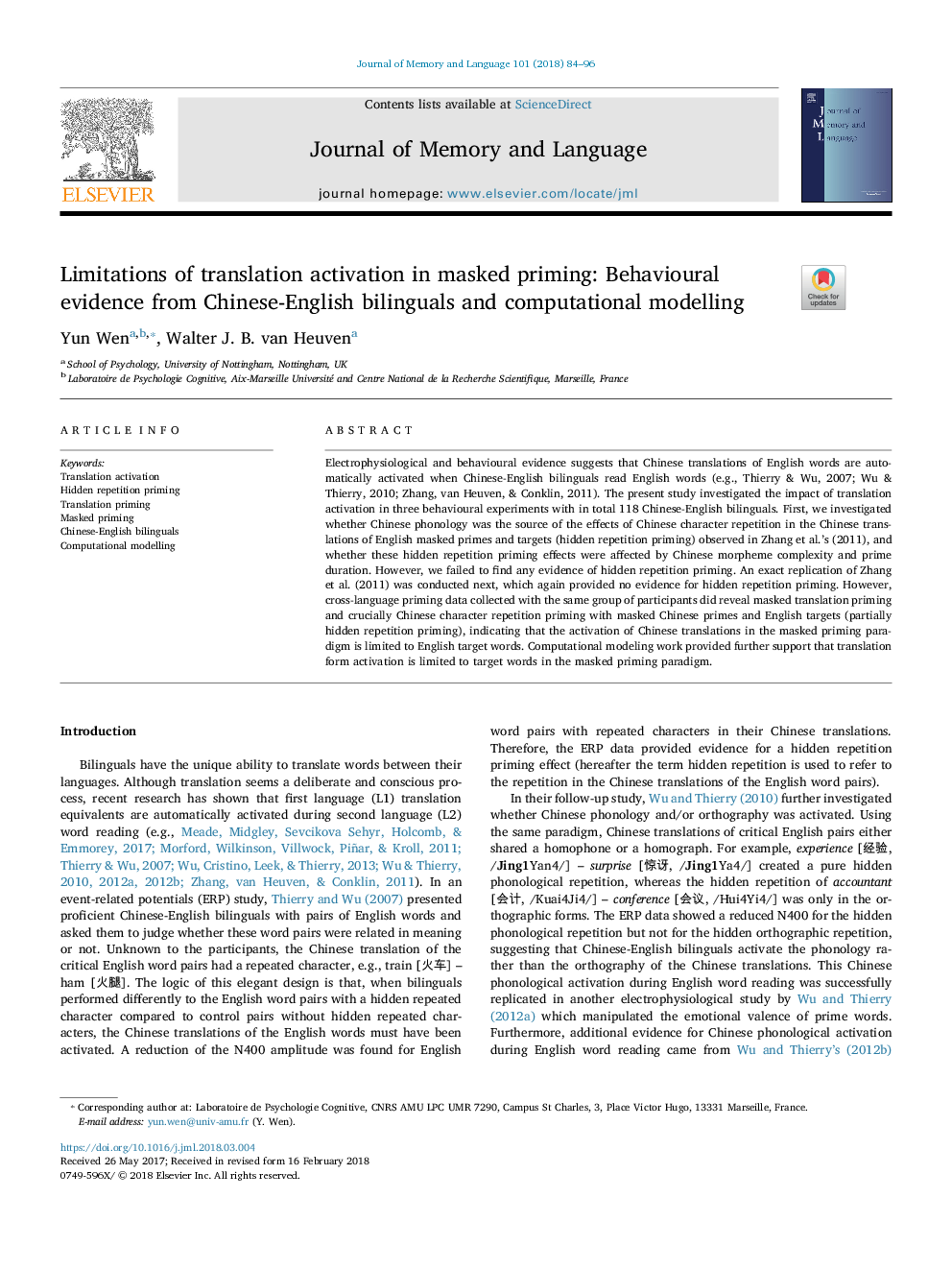ترجمه فارسی عنوان مقاله
محدودیت های فعال سازی ترجمه در پراکندگی ماسک: شواهد رفتاری از دو زبانه چینی و انگلیسی و مدل سازی محاسباتی
عنوان انگلیسی
Limitations of translation activation in masked priming: Behavioural evidence from Chinese-English bilinguals and computational modelling
| کد مقاله | سال انتشار | تعداد صفحات مقاله انگلیسی |
|---|---|---|
| 134058 | 2018 | 13 صفحه PDF |
منبع

Publisher : Elsevier - Science Direct (الزویر - ساینس دایرکت)
Journal : Journal of Memory and Language, Volume 101, August 2018, Pages 84-96

